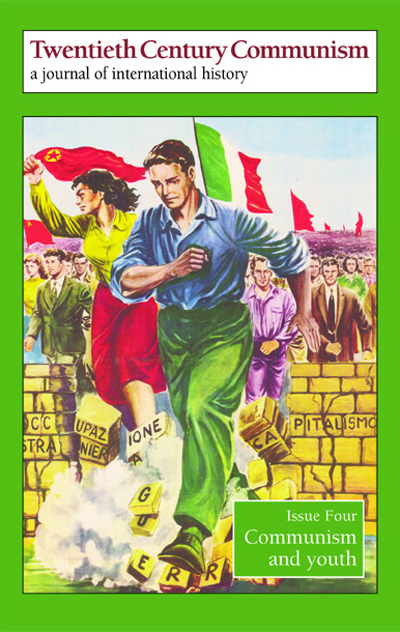
When the Party Comes Down: The CPGB and Youth Culture, 1976-1991
Twentieth Century Communism - Print ISSN 1758-6437 - Online ISSN 2978-1329
Volume 2012 Number 4
When the Party Comes Down: The CPGB and Youth Culture, 1976-1991
Evan Smith pages 38‑75
Abstract
Examines how the Communist Party of Great Britain interacted with popular youth culture in the Party’s final years. The arrival of punk in the late 1970s coincided with the rise of a more culturally aware group within the CPGB, inspired by Gramsci and the work of the Centre for Contemporary Cultural Studies, who saw youth culture as a reflection of young people’s experience of ‘oppression’ and a potential vehicle for creating a political awareness amongst British youth. This enthusiasm for youth culture coincided with a wider push in the Party for a more pluralistic approach to politics, enshrined around the concept of the ‘broad democratic alliance’ in the 1977 version of The British Road to Socialism. The success of Rock Against Racism and the Anti-Nazi League was held up by the reformers in the Party as proof that popular youth culture had political potential, but at the same time, the examples of RAR/ANL (as well as the wider subculture of punk) characterised how the CPGB viewed subsequent subcultures and wider popular culture in the 1980s. While the reformers within the Party, centred around the journal Marxism Today, were receptive of newer subcultures, like post-punk, hip hop/rap, acid house/rave, they were often contrasted against the history of previous subcultures, such as punk and its relationship to RAR. In the end, it seemed that despite the journal’s discussion of popular culture as an avenue for political engagement, those at Marxism Today found that youth culture could not provide a ‘lifeline’ for the ailing Communist Party.
To cite this article
Evan Smith (2012) When the Party Comes Down: The CPGB and Youth Culture, 1976-1991, Twentieth Century Communism, 2012(4), 38-75
